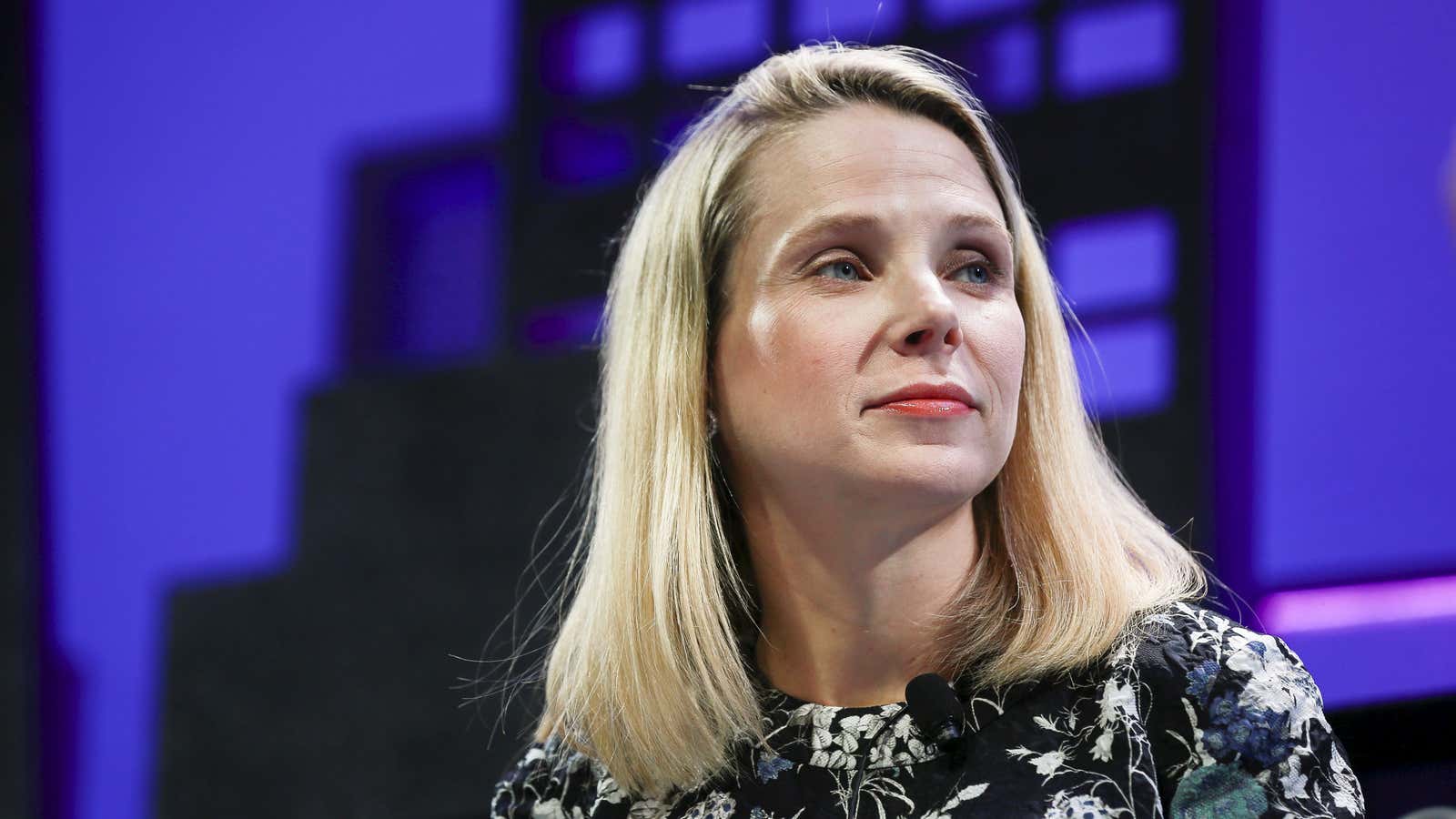The Marissa Mayer era of Yahoo could be coming to an end.
Yesterday (Jan. 9) the company announced in an SEC filing that Mayer, Yahoo’s CEO, will step down from her role on the company’s board, along with David Filo, who co-founded the company in 1994 with Jerry Yang, as well as four other board members. The company is also splitting itself into two entities—a holding company now called ”Altaba” that sits on a pile of Alibaba shares, and a provider of email and other various online media sites that is being acquired by Verizon.
Mayer’s future at the latter entity remains up in the air. In July 2016, when the company’s pending sale to Verizon was first announced, she wrote a letter stating she was “planning to stay” with the company. Recode, however, reported that she would likely go once the deal was officially completed.
Regardless of whether Mayer stays or goes, not much is likely to change at the company. That’s because even after her concerted efforts to make the company relevant again, Yahoo still looks more or less the same as it did when she first got there in 2012.
Mayer spent her first years at Yahoo attempting to infuse a product-focused mindset into the company, applying her experience as one of Google’s most-respected product managers. She spent billions of dollars acquiring Silicon Valley startups—most notably Tumblr, which it paid $1.1 billion for, along with dozens of smaller companies. She also inked deals with former NBC anchor Katie Couric and former New York Times tech columnist David Pogue, in an attempt to increase video views.
Yet these did little to revamp Yahoo into anything other than an astonishingly popular homepage—it remained one of the top-most visited sites online, behind only Google and Facebook as of October 2015. But in terms of products, apps would hit the market—two news readers, an Android launcher, a travel app, and an “award-winning weather app“—and barely make a dent in the broader tech zeitgeist. Employees complained about bureaucratic management and strategic inertia. Some investors believed that the company’s core business might be worth less than zero.
Yet Yahoo’s continued popularity showed that Mayer could merely preserve the status quo, not take the company into a meaningful new direction. As Quartz’s Mike Murphy writes, it’s the king of “internet for the olds“—a potentially lucrative position, but typically not where tech companies chasing new ideas want to be. If Mayer, one of the most revered product managers in the industry, couldn’t reverse the company’s course as its CEO and board member, it’s unlikely she’ll be able to do it as a Verizon employee.
